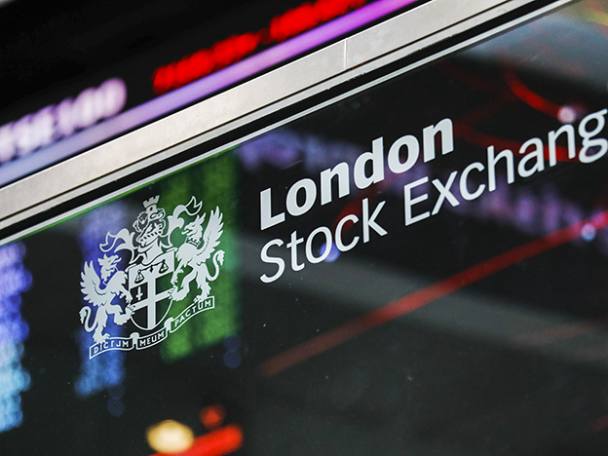- Bourse blocks trading in Russian companies
- Light at the end of the tunnel for cost savings
The shadow of war in Ukraine loomed large over the London Stock Exchange’s (LSEG) results, after the bourse released a separate missive suspending listings in 27 companies with strong ties to Russia. With sanctions roiling through the global financial system, London-based trading in the shares of names from Sberbank to Gazprom and Lukoil is now impossible.
Curiously, though a major reverse of the longstanding policy of attracting as many Russian companies as possible to list in London, management initially made only the merest mention of Russia in its presentation of 2021 numbers. Even then, it was to clarify that less than 1 per cent of total income is linked to the country and that it was liaising with regulators.
High drama aside, the results were an extended exercise in justifying why, having spent vast sums acquiring data-provider Refinitiv, setting aside £775mn to produce savings of £400mn over five years represented value for money. Management can point to a £50mn increase in savings on previous guidance, though it is notable that achieving this will cost £225mn because of the need to exit expensive multi-year property leases as the organisation rationalises its structure. It also shows that squeezing savings out of two mature companies with few fixed assets between them is incredibly difficult. Indeed, it is largely that the savings plan rested on the uncertain outcome of process changes, rather than deep structural ones, that cratered the market’s confidence over the past year. Still, the issues over costs should abate as the business consolidates in 2022.
The main operational question is how the data and analytics arm now performs, particularly at a time of growing economic turbulence. This division, the LSE’s largest segment by sales, is key to how the business performs in the long-term. Revenues here were largely flat in reported terms, with sales of £4.61bn barely shifting the needle. However, the two-percentage point improvement in the cash profit margin to 46 per cent does point to how operational savings can flow quickly to the bottom line - if the LSE can ultimately get on top of the integration. The suggestion that operational gearing is possible from here should give some comfort to investors.
Investors who followed our sell call last year (8,054p, 2 Sep 2021) have either profited from the short position, or can now benefit from a cheaper entry. 'Cheap' here is relative, at 20 times' forecast earnings for 2022, but at this point the company would need to deviate substantially from its current guidance for that downward run to continue. Therefore, it seems prudent to take profits. Hold.
Last IC view: Sell, 8,054p, 2 Sep 2021
| LONDON STOCK EXCHANGE (LSEG) | ||||
| ORD PRICE: | 6,794p | MARKET VALUE: | £38bn | |
| TOUCH: | 6,794-6,802p | 12-MONTH HIGH: | 9,886p | LOW: 6,230p |
| DIVIDEND YIELD: | 1.4% | PE RATIO: | 69 | |
| NET ASSET VALUE: | 4,241p* | NET DEBT: | 20% | |
| Year to 31 Dec | Turnover (£bn) | Pre-tax profit (£mn) | Earnings per share (p) | Dividend per share (p) |
| 2017 | 1.77 | 564 | 146 | 51.6 |
| 2018 | 1.91 | 685 | 138 | 60.4 |
| 2019 | 2.06 | 651 | 120 | 70.0 |
| 2020*restated | 2.03 | 492 | 83.6 | 75.0 |
| 2021 | 6.74 | 987 | 98.4 | 95.0 |
| % change | +232 | +101 | +18 | +27 |
| Ex-div: | 29 Apr | |||
| Payment: | 26 May | |||
| *Includes intangible assets of £31.7bn, or 5,753p a share | ||||









